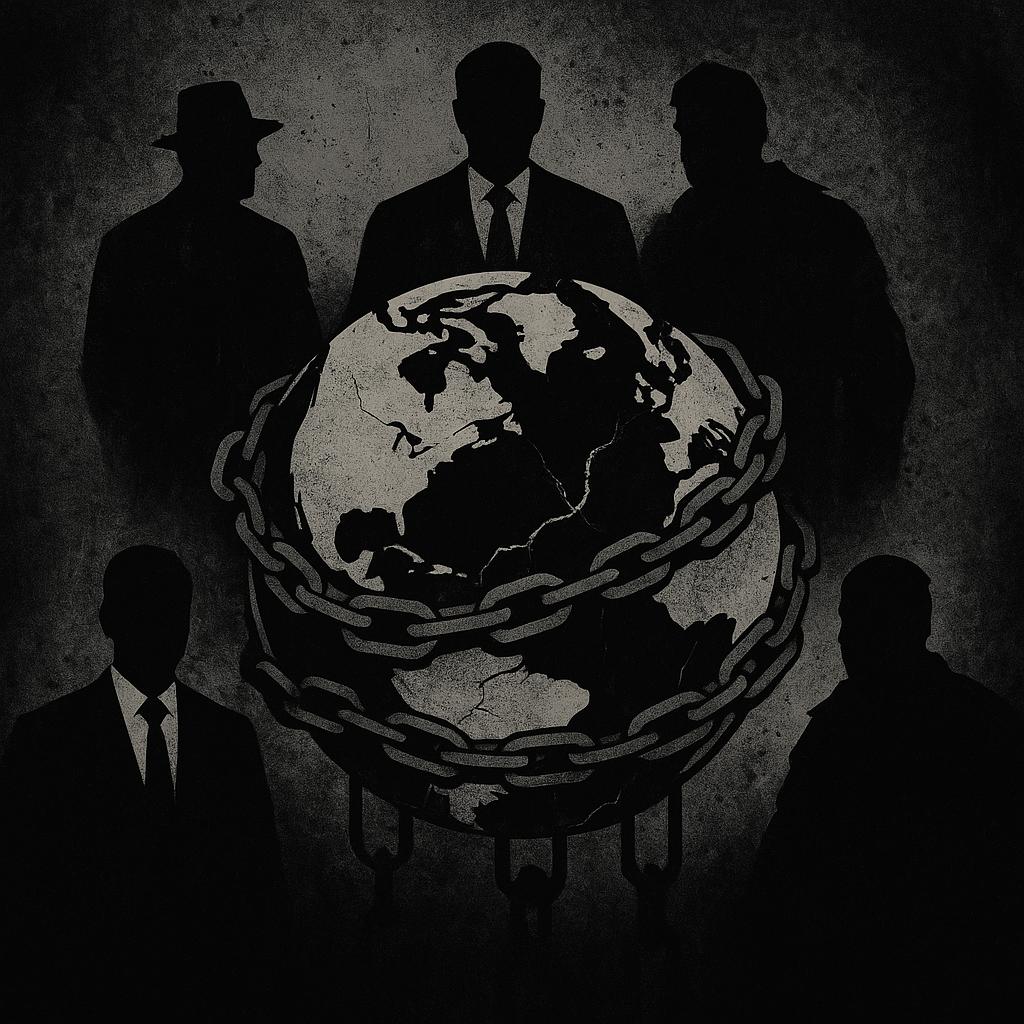The dream of a global government has always fascinated visionaries. It promises peace, coordination, and equality across the planet. Yet in reality, the world is ruled not by ideals but by entrenched structures of power. These structures exist both in the wealthy West and in developing regions. Super-rich families, banks, and lobbyists dominate advanced economies. Gangsters, warlords, and criminal elites control many poorer countries. Together they form a global wall against any supranational authority.
Entrenched elites in developed countries
In the developed world, the obstacles are obvious. Old dynasties, super-rich families, and billionaires shape policy without ever facing elections. Global banks and investment funds direct the flow of capital. Multinational corporations act as private empires, bigger than many states. Lobbyists in Washington, Brussels, or London make sure no law crosses their interests.
A true global government would demand redistribution, regulation, and oversight. For these elites, such a system is unacceptable. Their power rests on secrecy, lobbying, and financial dominance. They resist every attempt at supranational control.
Criminal and informal elites in developing countries
The situation looks different but equally obstructive in developing regions. Here, formal governments often coexist with hidden networks of power. Gangsters and mafia bosses control ports, mines, and borders. Corruption links politicians to smuggling routes, drug cartels, and human trafficking.
In Africa, warlords finance themselves through diamonds, oil, or rare earths. Narco-politics dominates entire states in Latin America. In post-Soviet regions, oligarchs built fortunes through privatization and now run countries as private businesses. These elites benefit from disorder. For them, international oversight is a threat, not an opportunity.
A global government would mean transparency and rule of law. But criminal elites thrive in shadow systems. They would defend their positions by any means, including violence.
Nationalism and sovereignty
Alongside economic elites stands another obstacle: nationalism. The principle of state sovereignty is deeply embedded in modern politics. Leaders use it as a shield against outside interference. Nationalist rhetoric turns global authority into foreign domination.
In the developing world, nationalism is often tied to tribal or clan loyalty. Defending “sovereignty” means defending the privileges of the ruling family or party. Supranational institutions become convenient enemies, blamed for every crisis.
Inequality and dependency
Global inequality is another barrier. Developed countries want to keep their privilege. Developing countries want equality but rarely achieve it. Institutions like the IMF or World Bank often deepen dependency through debt and structural reforms.
Yet the real obstacle lies inside many developing states themselves. Local elites profit from dependency. They act as brokers between Western finance and their own populations. They take foreign loans, pocket the money, and leave citizens with the debt. A global government would threaten this profitable arrangement. No wonder these elites resist it.
Cultural, religious, and tribal divides
Religion and cultural identity further complicate matters. In many societies, faith plays a stronger role than politics. Sectarian divisions prevent even local unity, let alone global integration. Tribal loyalties keep nations fragmented.
Questioning religious dominance is often more dangerous than questioning corruption. In such an environment, talk of global governance sounds alien. It is seen as hostile to tradition and identity.
The United Nations as an experiment
The United Nations represents the closest attempt at global governance. Yet its weaknesses are telling. The Security Council gives veto power to a few great powers. Funding depends on wealthy states. Enforcement mechanisms are weak.
In conflict zones, UN missions often fail because warlords, militias, and criminalized governments undermine them. In practice, the UN cannot override entrenched elites. It reflects the balance of power instead of replacing it.
Future scenarios
The future offers several possible paths.
Continued fragmentation. Global government remains utopian. Elites everywhere defend their systems. The world stays divided between national states and shadow structures.
Regionalism. Stronger regional blocs emerge — the EU, AU, ASEAN, BRICS. They integrate locally but remain divided globally. Cooperation improves, but global unity never arrives.
Crisis-driven change. Only catastrophic events — world war, ecological collapse, or pandemics — might force humanity toward stronger global governance. Yet even in crisis, elites may hijack reforms for their own interests.
Elite capture. A global government may emerge in form but not in substance. Western billionaires and developing-world gangsters could unite in defending their privilege under a new banner. The result would be global rule without justice.
Aware citizens as the only force of change
Despite these obstacles, there remains one potential counterweight: the citizens themselves. No elite — whether Western billionaires or developing-world gangsters — voluntarily surrenders power. Only an aware, organized, and determined population can challenge them.
Citizens who recognize how their lives are shaped by hidden networks are harder to manipulate. They can demand transparency, resist nationalism as a tool of division, and refuse to legitimize criminal elites. Awareness builds solidarity across borders. An Indian citizen who understands how corruption resembles that in Brazil or Nigeria begins to think globally. A European who sees the same financial secrecy in Panama and Luxembourg begins to connect the dots.
If citizens refuse to be ruled by lords, both financial and criminal, they can create pressure for a new order. Technology, communication, and education provide tools that earlier generations never had. But without awareness, people remain fragmented, and elites remain secure. Global government can only come from below, never from above.
Conclusion
The obstacles to global government are not abstract. They are practical and rooted in the real structures of power. In the West, super-rich families, banks, and corporations resist supranational oversight. In the developing world, gangsters, warlords, and corrupt elites defend shadow systems that keep them in power.
Nationalism, inequality, and religion add further barriers. The United Nations shows how fragile the dream already is. Global government will not appear through goodwill alone. Without dismantling both Western financial dynasties and developing-world criminal elites, humanity will remain fragmented.
The world will continue to be ruled not by one government but by many hidden empires.
Only citizens can bring change.

Leave a Reply